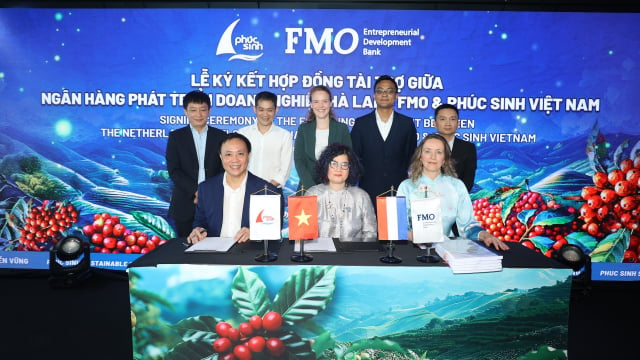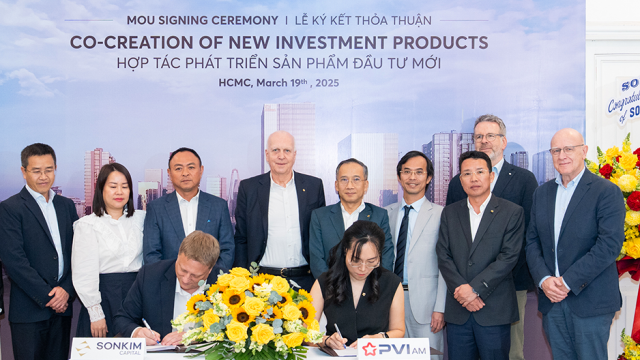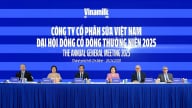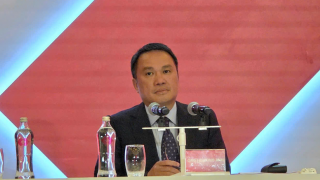Apart from foreign ownership limit (FOL), Vietnam should seek to address a number of issues related to the FX market liberalisation, information disclosure in English, overdraft and short selling facilities to be considered for a market upgrade on MSCI in the next two years, according to VinaCapital chief economist Michael Kokalari.
Vietnam has already met most of MSCI’s quantitative requirements for emerging market (EM) index inclusion, including market size, sufficient number of large cap stocks with sufficient daily trading liquidity, and other metrics.
The country, nevertheless, still has some work to do to meet the qualitative measures, which focus on openness to foreign investment and the ease of capital inflows and outflows in the country.
According to VinaCapital chief economist Michael Kokalari, the current biggest obstacle for Vietnam to gain the EM status on MSCI is thus the issue of FOL, which hampers investors’ abilities to buy all of the individual stocks that they want, and poses as the serious operational issues for foreign fund managers.
The chief economist pointed out that when a stock has reached its FOL, the only way a foreigner can buy the stock this by purchasing from another foreigner, which would typically be done at a 7-10 per-cent premium to the prevailing market price.
The main problem this presents to the buyer is that this stock will be “marked-to-market (MTM)” at the prevailing market price, so this investor will immediately suffer a 7-10 per-cent loss on that transaction.
The MTM problem can only be alleviated by setting up a separate “foreign board” on which stocks bought and sold between foreigners can be marked-to-market, or by introducing “Non-Voting Depository Receipts (NVDR), which have been very successful in Thailand, for example.
Another problem the FOL introduces is that many of these trades between foreign investors that are done with an FOL premium are done off exchange, which entails seeking case-by-case approval for those transactions.
Until 2015, FOLs on all industrial companies were 49 per cent. That year, the local government began allowing most companies (except for those in certain sensitive sectors) to choose their own FOL, but to date, only a small number – just 33 of nearly 750 listed companies – have elected to entirely remove their FOLs. Banks continue to be governed by the 30 per-cent foreign ownership threshold.
“In November 2018, the government released a draft of a new securities law that could potentially set the default FOL to 100 per cent for most listed companies (excluding banks). This legislation was not discussed at the most recent meeting of the National Assembly, which could mean that the soonest it will be discussed is at the May 2020 National Assembly. We believe that the passage of this law is probably a prerequisite for Vietnam to be put on the watchlist for MSCI-EM index inclusion,” wrote Kokalari in his note dated May 13.
On top of the FOL issue, Kokalari also raised a number of key areas for Vietnam to work on or improve in order to meet the requirements of MSCI market accessibility criteria.
In particular, the country must consider allowing investors to hedge the FX risk on investments they made in Vietnam and improve the ease of capital inflows and outflows for investors to take money in and out of the country.
Kokalari also noted the issue related to the availability of information disclosure in English, in which listed companies’ annual reports, accounts and other materials are mostly in Vietnamese and not all information from the stock exchange or even regulations is available in English.
In addition, Vietnam ought to enhance its market infrastructure, in particular its regulatory and practical framework allowing short selling and a functioning clearing system to address the pre-funding practices and authorise the use of overdrafts.
“Given the number of changes that have to occur and the slow pace of legal reform, we believe that Vietnam’s promotion to EM status will occur in the next two years,” said Kokalari.
MSCI-EM inclusion is significant for Vietnam as there are about $200 billion of ETFs that track the MSCI-EM index. When Vietnam gets included in the MSCI-EM index it will almost certainly trigger over $3 billion of inflows to its stock market.







































